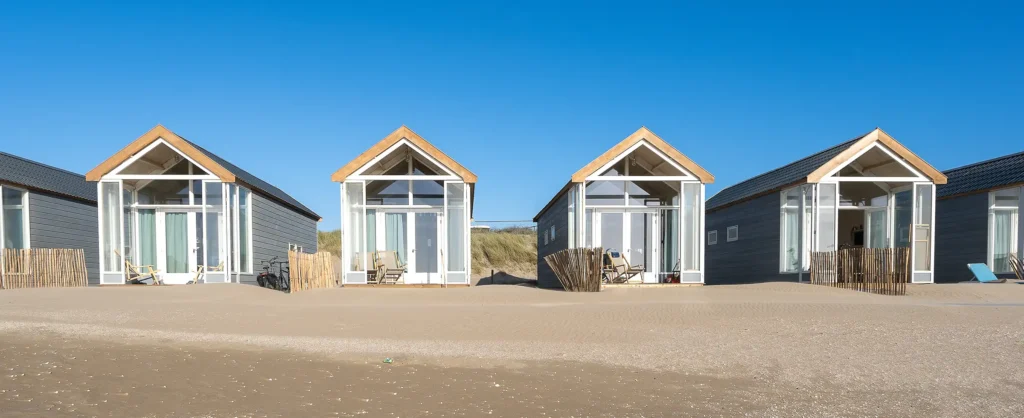With a recent report from the Guardian revealing that living in private rented housing is linked to rapid biological ageing, the question of how much of an impact housing has on health is on everyone’s lips.
It may not be a secret that a profound connection between health and housing exists, but the extent of that connection is still being explored. Nowhere is that more true than in the oft-misunderstood and sometimes ‘invisible’ world of mental health.
The global observance of World Mental Health Day this past Tuesday has once again highlighted how essential mental health is to the way we function as a species. In many ways, then, good mental health is just as essential to the human experience as housing that meets its occupants’ basic needs.
But what does the data say? What are the tangible ways struggling with your housing situation can negatively affect your mental state? And, once you’re in poor mental health, how difficult is it to find secure and affordable housing?
Why is Mental Health in the Spotlight?
Mental health is hardly the taboo that it was just a few decades ago, and for good reason. The mental health charity Mind states that 1 in 4 people will experience mental health problems every year in England and that 1 in 6 report experiencing a common mental health problem like anxiety or depression in any given week.
With the World Health Organization (WHO) reporting a 13% rise in mental conditions and substance use disorders in the last decade, the days of mental health as something to be quietly swept under the rug simply cannot co-exist with the worsening reality and growing openness surrounding the subject.
Despite shifting attitudes towards the general idea of mental health, public awareness and acknowledgement of how mental health conditions can negatively impact the everyday lives of those struggling with them is a more obscure area, especially in the case of severe mental illness.
As demand for mental health services increases and attitudes become more progressive, the influence it has over our ability to live healthy, functional lives will only be taken more seriously.
The Relationship Between Poor Housing and Poor Mental Health
Given that deprivation has long been linked to poor mental health, it should come as no surprise that the stresses of living in substandard housing can amplify, or even cause, mental illness. Research from the NHS Confederation has proven as much, showing that settled housing has an overall positive impact on mental health while poor-quality housing has the opposite effect.
In London alone, the share of households where at least one adult has a mental health problem and whose housing costs exceed 33% of their income is 14% higher than households in which no adult has a mental health problem. Earlier this year, the Money and Mental Health Policy Institute also reported the following:
- 24% of those who were considered economically inactive (otherwise known as not in employment, education or training) due to long-term sickness had a mental health problem as their primary condition.
- People with mental health problems do worse on average with finances compared to the rest of the population.
- 54% of UK adults say they have felt anxious as a result of higher prices of late, while 21% have felt unable to cope.
This data suggests that financial difficulty can disproportionately affect those suffering from poor mental health and that a surprisingly high percentage of the population may well fall under that banner. Recent developments in the private rented sector caused by mortgage rate hikes and the cost of living crisis have worsened this burden for renters especially, with the average UK renter now spending nearly four times as much of their income on housing as homeowners according to The Independent.
The same Independent article shows that private renting is not only the most expensive of all tenure types but that average floor space has fallen significantly in the past 20 years. Were this not enough of an explanation for the worsening health of private renters, the UK government’s 2022 survey of the private rented sector revealed that almost a quarter of the occupied homes in the private rented sector are estimated to fail the Decent Homes Standard, marking them as unfit for living by the criteria used to assess social housing quality.
As frequent readers of the CCG Blog may know, the Decent Homes Standard could soon be applied to the private rented sector following government consultation. For the time being, however, the private rented sector has festered into an increasingly difficult and unreliable presence in the life of the average renter.
The Domino Effect of Poor Housing on Mental Health
The relationship between poor housing and mental health may seem cut and dry, but closer analysis suggests it may be a complex and dizzying spiral that vulnerable tenants could struggle to break away from.
According to NHS England, mental ill health and housing problems are often cited as a reason for tenancy breakdown and admittance to inpatient care by vulnerable renters. Similarly, a report by the Local Government Association (LGA) titled ‘The Impact of Homelessness on Health’ suggests that the loss of assured shorthold tenancy is the leading cause of statutory homelessness in the UK.
The most people-oriented glimpse into how poor housing psychologically harms renters can be seen in the results of Shelter’s 2017 report on the impact of housing problems on mental health, which highlights that:
- 41% of clients saw their mental health improve following housing-related support from Shelter
- 21% of English adults reported that housing issues had negatively impacted their mental health in the last 5 years
- Housing affordability was the most frequently referenced issue by those who linked housing pressure to their poor mental health
- 3 in 10 respondents who had dealt with a housing problem or concern in the last five years claimed that it had not only negatively impacted their mental health, but also that they had no pre-existing mental health conditions beforehand.
Not only does poor quality housing directly lead to poor mental health, but the effects of that worsened mental health can make it significantly harder for renters to stay in their homes or maintain financial stability. The resulting fear and reality of being homeless only exacerbate poor health across the board, with 89% of homeless respondents to a national survey reporting worsening mental health due to a lack of secure, good-quality housing.
If mental health is to be taken seriously and treated like the potentially crippling obstacle to stability that it is, investing in systems that give those who have struggled in the private rented sector a chance at recovery will be instrumental. Ending the domino effect of poor-quality housing on mental health could become a priority for policymakers, charitable organisations and even property investors.
How Concept Capital Group Helps Vulnerable Tenants
At Concept Capital Group we know just how much of a burden poor mental health can be on tenants navigating the private rented sector. One of the reasons we put vulnerable tenants at the centre of our buy-to-let property investment strategy is to offer those who have been displaced or marginalised by traditional housing options an opportunity to find the security they deserve.
By pulling our tenants from a pre-approved list of vulnerable households, we can not only ensure that every new modular home we place is filled and generating passive income within 90 days of payment, but that every investor plays an important part in building a better housing market for displaced renters.
Are you invested in destigmatising mental health through ethical investment? You can learn more about our products, services and social impact by booking a call with our team today.













